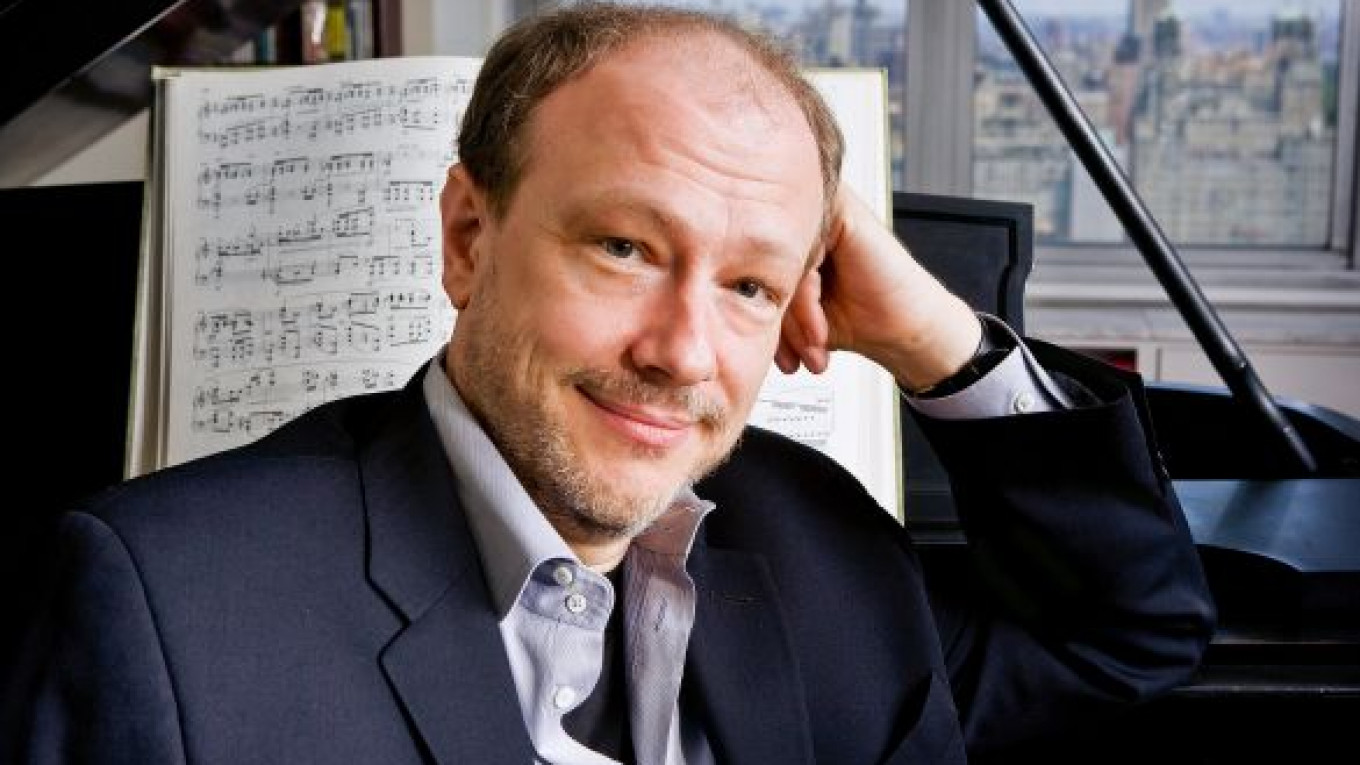Marc-Andre Hamelin, the renowned Canadian pianist performed in Moscow last week with the National Philharmonic Orchestra of Russia, spoke to The Moscow Times after the concert on the hidden gems of Russian music and what it takes to become a "super-virtuoso."
Q: Much of your repertoire is based on exceptionally difficult pieces. Is it about the challenge?
A: Not at all! I am trying hard to shake off that image. Technical difficulty is never the main reason why I choose a work. I don't even enjoy playing difficult pieces! What is important is emotional sincerity, the ability to channel feelings into music. I think that endings really betray a composer's craft. They have to be dramatic, convincing in a way that is hard to pin down. In the end, everything boils down to material — the tunes are either good or not. That said, I am often attracted by dense, orchestrally conceived pieces, and these inevitably involve difficulty. A case in point is Leopold Godowsky. His transcriptions of Chopin's etudes are unbelievable.
Q: You are also quite fond of exploring lesser-known composers. What makes you look beyond the more usual repertoire?
A: Natural curiosity, I guess — my parents had a huge collection of records, so I became familiar with a good part of "standard" repertoire while young. As a teenager, I would spend hours listening to the avant-garde, composers like Cage or Stockhausen. What they had brought to music was strange and wonderful. I knew I wanted to find out more.
However, I don't want to be associated solely with rarities. My next recording will be three concerti by Haydn, and in the near future I would like to take on Schubert's Impromptus. I do think some works are overplayed — when I grew up I hated Debussy just because he was everywhere. Sentiments change though, I am now planning to release two albums with his work.
Q: One of the less popular composers you favor is Nikolai Medtner, whose Second Piano Concerto you played on Thursday.
A: I was asked by the International House of Music to play Rubinstein's Fourth Piano Concerto, but Medtner's Second [Piano Concerto] was entirely my own initiative. For me, his music was something of a revelation. It may take a while to appreciate, but once one delves into it it reveals a surprising melodic variety and richness. His works are very "pianistic," and I think his sensibility may rival Chopin's. On the whole, Russian 19th- and 20th-century music is a veritable goldmine of talent. Take [Alexander] Scriabin and Georgy Catoire. A bold innovator with his own harmonic system and a traditionalist tutored by Tchaikovsky, these two could not be more different. Yet both are exquisite.
Q: How do you prepare for performances?
A: The crucial thing is to understand the composer's emotions and intentions correctly, so I spend most of the time studying the score as closely as possible. A facsimile of the handwritten original may help, if available. I avoid listening to other renditions unless I feel I have formed my own vision.
Q: Your perfect pitch must surely help.
A: Absolutely! I really admire musicians who cope without it. It means that I am able to hear a score in my head as I look at it, and often instantly decide if I want to play the piece.
Q: You also compose yourself. Do you think that can make one a better pianist?
A: Yes, given that a performer's main task is to understand the work they are dealing with. Experience with composition makes it easier to relate to another composer. Pianists tend to have more of an arranger's mindset.
Apart from piano etudes and transcriptions, I have written a few pieces for player piano. As a kid I was fascinated by the mechanism, I could pump rolls forever. One of the pieces, a miniature called "Circus Galop," [which is impossible for a human to play as up to 21 notes are played at the same time] has about 4.5 million views on YouTube by now. Think of the money I could have made [laughs].
It is quite sad that composing and being a concert musician rarely go together these days. In the 19th and early 20th century that would be the norm. One reason could be lack of support from musical institutions — on the performer track, tuition in composition is often erratic.
Q: Are you planning to visit Moscow again?
A: Yes, I will be coming next April. The program includes Faure, Ravel and Rachmaninov, another of my favorite Russian composers. It should be an interesting combination.
A Message from The Moscow Times:
Dear readers,
We are facing unprecedented challenges. Russia's Prosecutor General's Office has designated The Moscow Times as an "undesirable" organization, criminalizing our work and putting our staff at risk of prosecution. This follows our earlier unjust labeling as a "foreign agent."
These actions are direct attempts to silence independent journalism in Russia. The authorities claim our work "discredits the decisions of the Russian leadership." We see things differently: we strive to provide accurate, unbiased reporting on Russia.
We, the journalists of The Moscow Times, refuse to be silenced. But to continue our work, we need your help.
Your support, no matter how small, makes a world of difference. If you can, please support us monthly starting from just $2. It's quick to set up, and every contribution makes a significant impact.
By supporting The Moscow Times, you're defending open, independent journalism in the face of repression. Thank you for standing with us.
Remind me later.






